What Plants Need
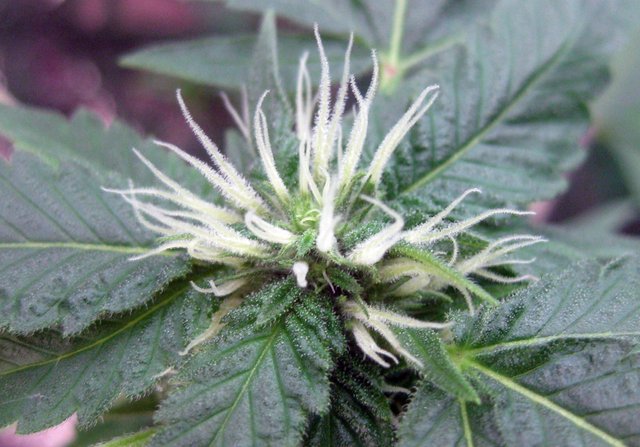
That's my gorgeous pink kush, 5 weeks into flowering. What luscious pistils, small perfectly-formed leaves coated in trichomes, and buds beginning to swell.
I have 4 plants like this. Here's one of them:
I've had no problems with pests. There are some tiny bugs that live in the soil, that I haven't identified, but they may be commensal (commensalism is a type of symbiotic relationship where one benefits and the other is unharmed). No aphids or mites or worms, nothing.
Morganic
Some people talk about growing plants "organically", which generally means only using fertilizers and pesticides that are "organic" - made from living things. Sure, I love organic food, and organic medicine! It's much better than the chemical-laden stuff coming out of the Licensed Producers here in Canada. But for me, going organic isn't going far enough.
A lot of stuff is organic (made from living things), but not necessarily safe or healthy. Snake venom, after all, is organic. Human feces is organic, and so is neem, but you would never put any of those on cannabis to be used internally!
 - Ewwww!
- Ewwww!
I love the idea of there being as little crap as possible in my medicine. I know that the cannabis plant is incredible at soil remediation, sucking up any compounds it finds (like toxins, heavy metals, etc), and storing it in plant's resins. That's great for cleaning the soil, but not great for patients using the oil!
I like to grow cannabis "morganically", which is to say, more-than-organically. I use no fertilizers at all. No pesticides at all. Only what the plant needs, which is:
- air
- water
- light
- dirt (90% sphagnum moss, 10% worm castings)
Is that really enough to build roots, stems, leaves, flowers, and over 100 different cannabinoids?
Doesn't a plant need "N-P-K" added, in some form? What about magnesium and calcium? What about all those trace minerals needed to make all the various compounds in the plant?
The Science
With help from bacteria (diazotrophs) and fungi (mycorrhiza), plants get their needs met using air, light, water, and minerals from the soil.
Water is a plant's source of Oxygen and Hydrogen. Plants soak up water through their roots.
Plants use light to build sugar out of Carbon from the air. When CO2 and light hit the green chlorophyll of a plant, they're combined with a water molecule to form sugar, which can then be built into almost anything. (As a byproduct, the plant releases fresh O2 for me to breathe.)
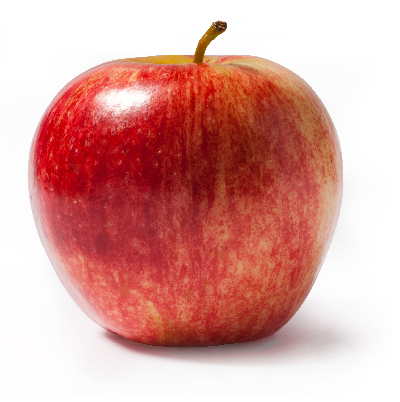
Similar to how I use Iron to process Oxygen, plants use Magnesium to process Carbon Dioxide. Chlorophyll has a chemical formula of C55.H70.O6.N4.Mg (one Magnesium atom per chlorophyll). Plants uptake their Magnesium absorbed in water with their roots.
What about Nitrogen? Earth's atmosphere is made of it - that's why the sky is blue! Nitrogen atoms don't bond very easily (except with each other). Like me, a plant can't just absorb or "fix" it out of the air. Plants absorb Nitrogen as NH3, aka ammonia. So where does ammonia come from?

Nitrogen-fixing bacteria - Bacteria in the soil convert gaseous Nitrogen into NH3 - dissolved ammonia - which plants uptake through their roots and build into amino acids.

Calcium is found in all living cells. Plants absorb Calcium from the soil. They use it structurally to build cell membranes and cell walls, in new leaves as part of cell division, and biochemically to perform actions like closing the stomata (pores).
Phosphorous is the "P" in the "N-P-K" of plant fertilizers. And Potassium is the K. Plants require lots of each, because they use those elements in their systems. Both are absorbed through the roots.

Sulfur is another element that is essential for all life. In plants and animals, the amino acids cysteine and methionine contain most of the sulfur. Plants (and cyanobacteria) absorb Sulfur as Sulphate (SO4), and convert it to methionine to make proteins.

All life requires Iron: the nitrogen-fixing bacteria mentioned above have Iron atoms in their enzymes, plants require Iron to produce chlorophyll, and I use Iron to carry Oxygen in my blood. Plants uptake Iron through their roots and use it everywhere, especially in leaves and legumes.

Plants require so little but give so much!
In humans, there are nine essential amino acids, which means we need to get them from our diet. There are also two essential fatty acids (aka omega-3 and omega-6). Cannabis seeds (aka "Hemp hearts") contain all 9 essential amino acids and both essential fatty acids. It's amazing that CO2, dirt, sunlight, and water can do all that!
So if plants don't need all those chemicals, organic and otherwise, why do we use them?
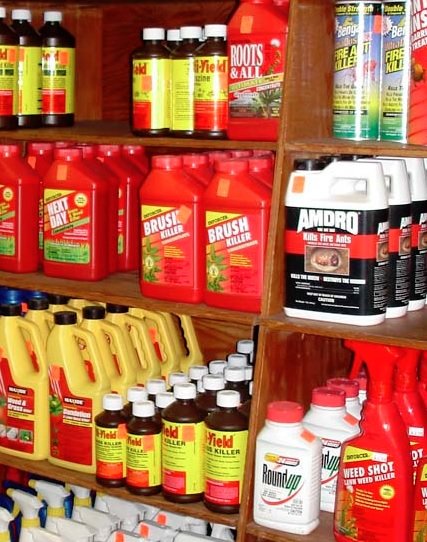
Mostly for convenience, and to increase yield (total mass produced). Perhaps it comes down to the age-old question, which befits the topic of cannabis growing and Steemit posting alike:
Quality or Quantity?

All the best with your growing!!
DRutter
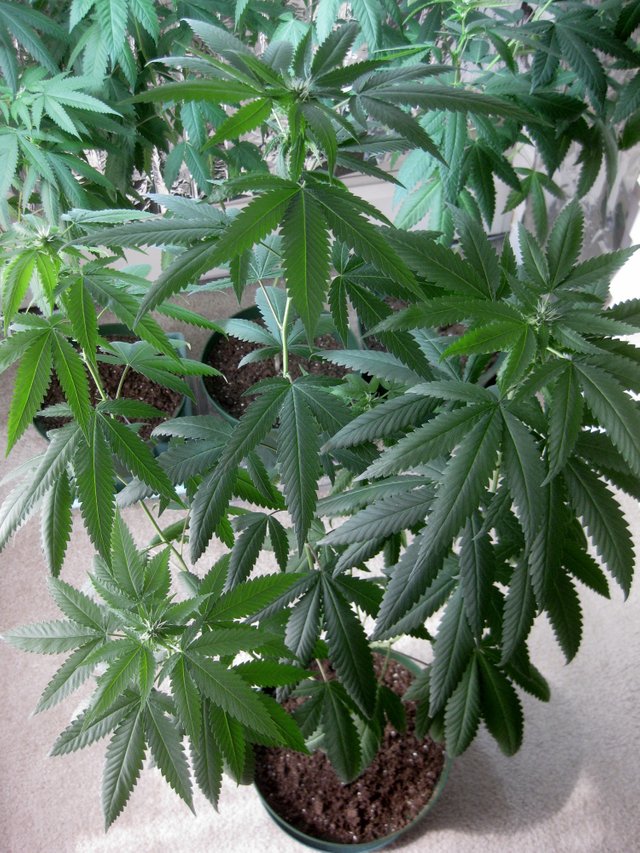
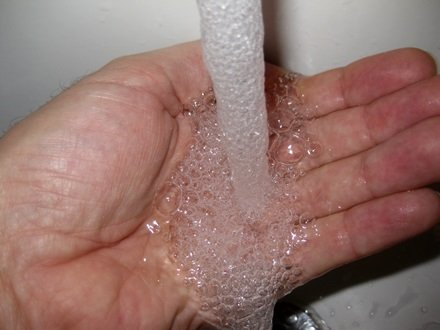
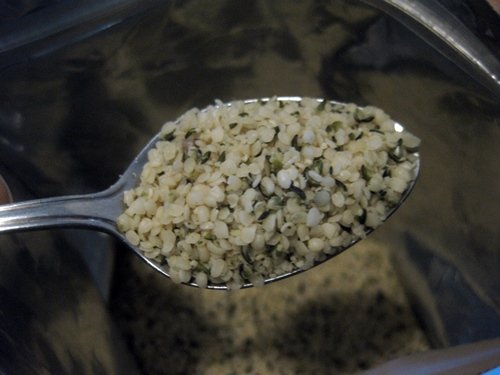
Calcium and magnesium is the biggest must! I stopped using NPK, and having great results!!!! Damn fine post sir.
The trace and ultra-trace minerals are important as well, albeit in very small quantities. Luckily they're naturally occurring in good spring water. I'd be hesitant to use reverse osmosis or distilled water for plants because of their lack of minerals.
I find that if your roots are in soil, dirt, or pretty much anything else other than distilled or R/O water, the trace minerals aren't a problem.
Besides, you don't see "trace minerals" listed on any fertilizers. It's just assumed that they're in the dirt or water. Only a pin-dot amount of each is required, it's miniscule. The main minerals N O H and C come from water, air, and soil bacteria. The trace minerals are in the soil or water supply.
Yeah, for sure. Another thing that's rarely discussed is the bioavailability of certain molecular structures, or even their existence! It's astonishing that we say things like "Oh, she's anemic, she's lacking Iron." What type of Iron? Iron oxide? Ferrous iron?
The forms of Phosphorus and Potassium in the NPK fertilizers are not the most bioavailable, just the cheapest. It's why I shake my head when people promote fruit being healthy since it's high in Potassium, when that is mostly the poorly-absorbed, somewhat toxic form absorbed from the fertilizers used.
It's interesting that you prefer using no fertilizers. What makes you choose that over natural methods like burning plant material to ash to make potash, etc.? Just there being enough already present in soil/water like you mentioned?
I would use tap water, but ok middle of farm land and am really weary of it.
Why do you say that Ca and Mg supplementation is a must? I've just shown (with my plants AND with the science) that you're wrong.
I find your plants a little bit radioactive-green, to be honest! Don't you notice that they're the greenest plants you've ever seen, greener even than a lawn fed RoundUp, greener than anything in Nature? Just a little too much Magnesium I think :)
Never said it was a must. Just saying it’s important. But yeah I use RO water so it’s important I do add a cal/mag supplement. To much green , no such thing.
Well you kinda DID say it was a must...
"Calcium and magnesium is the biggest must!"
Anyway lol
Oh, I didn't know you were on R/O water there.
What about the soil, is yours deficient in Ca and Mg? I haven't read the fine print but the stuff you use looks like it should be fine?
I guess you're right, green is good.
I use a soilless mix , it has worm castings, mycohonize, and some other goodies. For the longest time my plants where not doing so good dude to RO water and no cal/mag supplement. I still got a lot of learning to do still. And I’m open ears. Like for the longest time I thought neem was good. Got to go back to the drawing board on that one. Any suggestions?
I'd just fall back on using whatever other treatment you have in your arsenal, for whatever pest or issue you're dealing with. Neem has been a sort of "all in one" for a lot of organic gardeners, but many are reconsidering how much they use, if at all. I'm partial to using ladybugs, and beneficial herbs like garlic and basil which keep away most pests. I also believe prevention is better than cure, so I keep things as clean as possible, don't bring outside plants in to my inside plants, etc. Some people like to put some mild hand soap in water and spray problem bugs, it works for some things and not for others. I think a lot of good ideas are going to come forward out of this, as the news spreads. We'll battle the bugs and leaf molds together!
My only issue is white mold due to high humidity. I could get a dehumidifier and probably should. Just the good ones are a little outta my budget. I’ve heard a solution of milk with water works. Maybe will try that👍
Congratulations! Your post has been selected as a daily Steemit truffle! It is listed on rank 5 of all contributions awarded today. You can find the TOP DAILY TRUFFLE PICKS HERE.
I upvoted your contribution because to my mind your post is at least 8 SBD worth and should receive 167 votes. It's now up to the lovely Steemit community to make this come true.
I am
TrufflePig, an Artificial Intelligence Bot that helps minnows and content curators using Machine Learning. If you are curious how I select content, you can find an explanation here!Have a nice day and sincerely yours,

TrufflePig